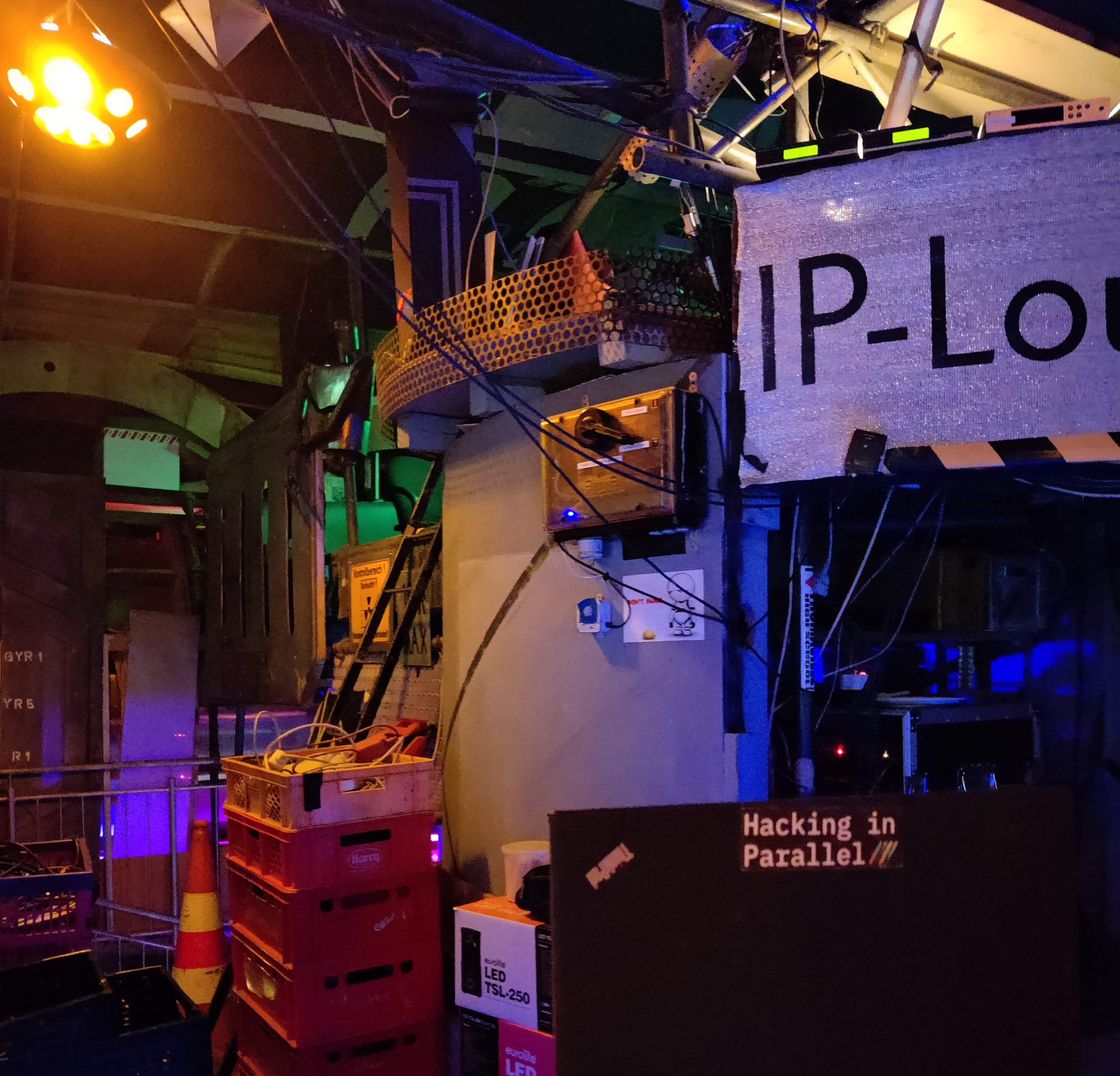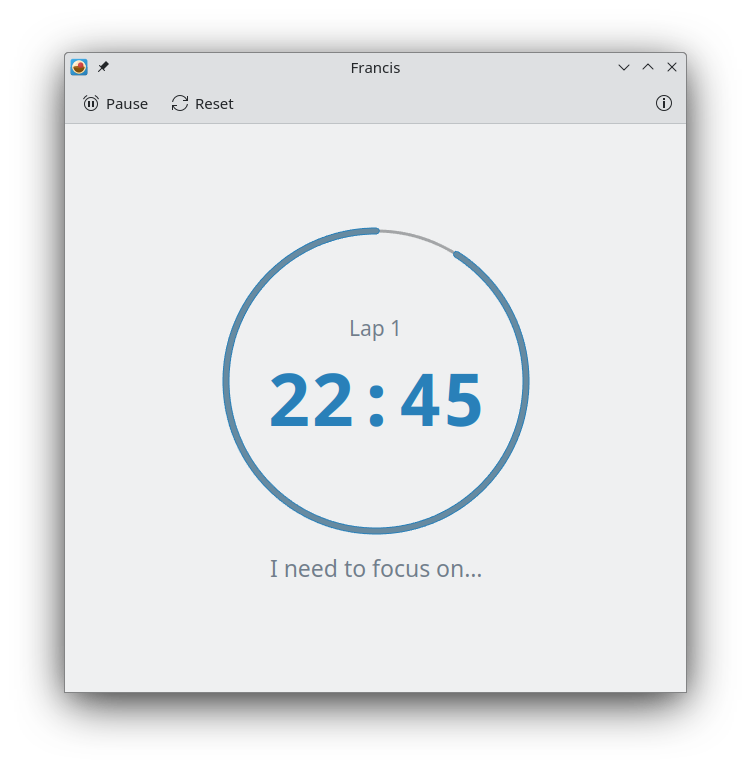For the past few days I was at the seaside.
As my better half had some work that she needed to take with her, I also took my new laptop and when she was doing her thing, I tweaked a few small things here and there. Nothing major though, as we were still on vacation.
Games
Not that I game much these days, especially on PC, but if I already have a Vega 8 graphic card, it would be wasteful not to at least try it.
By default I am booting into Zen kernel, as it is said to provide a smoother experience on laptops/desktops as well as with gaming.
Lutris (and Steam)
Initially installing either Lutris or Steam failed me with a SegFault, but after asking on the forums and digging through Lutris documentation, I managed to get both installed.
Then I added my Steam, GOG and Itch.io libraries to Lutris. Installing (and launching) games through Lutris is super convenient.
A problem I am still running in with though is a bit weird. Lutris offers a really nifty option to change the keyboard to US when launching a game. That is quite handy for me since my default layout in Neo2.
But the problem is that even after the game ends, (some?) GTK applications – at least Firefox, GIMP – retain US layout even after the game (or even Lutris) ends. So far I could not figure out how to fix this or work around it, apart from simply not using that option.
The few games I tried seem to run fine (e.g. Return to Monkey Island runs perfectly), but I am sure there is some performance tweaking to be made … some other day.
Mouse go whoops!
This was a bit awkward …
I have a Roccat Kone Pure mouse, which I find to be a great programmable mouse with 12 buttons. It is marketed as a “gaming mouse”, but honestly I use it to bind some keyboard shortcuts to mouse buttons.
As is often the case with these things, to update and modify the firmware on the device itself there is a (no longer maintained, but stable) (semi-)official niche one-man Linux tool – Roccat Tools. The tool still works fine, even though it has not seen an update since 2019.
If you want to write firmware to the (mouse) device, you need write premissions to it, which is obviously and sanely, not the case the default. The packages do provide the correct UDev rules, but you still need to add yourself to the roccat group.
And here is where it got ugly.
I forgot to use --append in the usermod command … yeah, not great. Do not forget to use it.
To fix my stupid mistake, I had to log in as root (luckly I could!) and add myself to the right groups from memory. I hope I got it right 😅
Console
Nowadays I rarely use the pure TTY console, and am typically in a PTY like Konsole or Alacritty.
Regardless, when that happens, I do like having a nice environment, so I did at least some basics.
Fonts
Default console fonts are not very pretty and I needed to tweak at least the FONT_MAP to get some common Slovenian characters (č, š, ž) to work anyway, so I went font window-shopping.
There are not many console fonts – too limiting and not sexy enough for designers, I assume – but there are a few, and in the end I settled for Spleen.
Later I noticed that Spleen is the default console font in OpenBSD since 2019, which brings me hope this font will continue to be maintained.
After refreshing my memory with the Arch wiki: Linux Console, I added the following to /etc/vconsole.conf:
KEYMAP=slovene
FONT=spleen-12x24
FONT_MAP=8859-2
I did also consider the following fonts, and here is why I did not chose them:
- tamzen – especially its PowerLine variant did make my CLI prettier, but
č, š, ž support was lacking; - terminus – the venerable Terminus was really close to staying my console font of choice, but I just wanted something more fun.
Mouse
Having a working mouse/touchpad is also a nice thing to have in a console, so I went and installed Consolation. It was as simple as:
yay consolation
systemctl enable consolation.service
GPM probably works fine still, but apparently its code is hard to maintain at this stage and not working great with touchpads, so I tried the much more modern Consolation.
It is very flexible, but out of the box it worked fine enough for me, so I did not mess with it right now. I may later though.
Boot splash screen
Since I had some extra time, I decided to also include a splash screen when booting.
I decided for Plymouth, as it seems more powerful and maintained than the alternatives.
After a simple yay --sync plymouth plymouth-kcm I downloaded and selected my preferred theme through the Plymouth KCM.
Then I needed to enable Plymouth by adding it to Dracut with:
/etc/dracut.conf.d/plymouth.conf:
force_drivers+=" amdgpu "
add_dracutmodules+=" plymouth "
… and generating the new sudo dracut-rebuild and reboot.
For some reason without forcing the drivers with force_drivers it would override my font settings with defaults again. Hat-tip to dalto for helping me with that issue.
To actually make it apply, I had to pass the splash kernel parameter to GRUB, as described in Arch Wiki: Kernel parameters. For now I decided not to use quiet, but I may enable it later. Eh, I did go for quiet by the end of the day. Looks nicer and I can always lnav /var/log/boot.log to see the boot logs.
I considered making the boot silent, but at least for now, I decided not to.
Background in console
I tasted blood.
I wanted to pimp my TTY as much as I did back during my Gentoo days.
I wanted a pretty backround and frame even in my console!
Sadly, it seems there is an issue with modern kernels (5.17 and newer) and the patch that is needed to get that to work. Also FBSplash seems to not have been maintaind in a while, to the extent that even Gentoo removed it.
So, I gave up on that piece of nostalgia. Oh, well, good times …
KDE
X11 vs Wayland
After using Plasma on Wayland for a few days and then using it on X11 again, I noticed a few more nice things on Wayland:
- Touchpad gestures exist on Wayland, but not on X11 – I am surprised to how much I look forward to the gestures being polished, now that I have a large trackpad.
- Some things – e.g. the pop-down hints in Kate while you type – look much nicer on Wayland, but that we knew.
There are some very big caveats when using Plasma on Wayland right now though, but it is being worked on:
- Applications do not prompt to save unsaved work, causing data loss – KDE bug № 461176 – this is a big big issue, but is being worked on.
- When the compositor crashes or restarts, non-Qt apps are killed — work is ongoing to fix this and just recently David ”DeD” Edmundson blogged about great progress on how with Wayland this would not just get fixed, but make sessions much more robust than we have ever seen before, with added bonuses of essentially safe-states for apps, upgrading without logging out, etc. Go read DeD’s blog post, that stuff is mind-blowingly amazing!
- Global Menu is not supported for non-Qt apps – KDE bug № 424485 – I have been using an auto-hiding Global Menu for many years now, to save vertical space, but with a 14" screen, I am OK without it.
For now, I will probably switch between X11 and Wayland, depending on whether the priority of the day is a) to make sure I do not forget to save things I worked on, or b) a more shiny and fluid experience.
Disable hibernate
Since I never suspend do disk (hibernate, S4), I disabled that, so the icon in Plasma menu goes away.
Following Arch Wiki: KDE, I simply created:
/etc/systemd/sleep.conf.d/00-disable-hibernation.conf with the following in it:
[Sleep]
AllowHibernation=no
AllowSuspendThenHibernate=no
AllowHybridSleep=no
Missing packages
While I was adding a few Plasmoids to my desktop, I noticed some were missing, which also caused the TodoList Plasmoid not to work.
After asking on the forums a bit, I installed the whole Plasma metapackage with yay plasma-meta and restarted it. As for KDE Gears, I prefer to install each application separately.
While I was at it, I added a few more KCM modules as well:
yay --sync colord-kde systemd-kcm kcmsystemd kcm-wacomtablet kcm-polkit-kde sddm-kcm plymouth-kcm
What was also missing was spell-checking. Since Sonnet supports several spell-checking back-ends, I installed the Hunspell dictionaries of the languages I typically use. That should also make them available to LibreOffice.
While I was at it I also did yay --sync languagetool libreoffice-extension-languagetool to enable grammar checking in LibreOffice through the awesome LanguageTool.
Make GTK apps look Qt
To provide some better visual consistency between Qt and GTK applications, I installed kde-gtk-config to be able to chose the GTK theme also within KDE, and breeze-gtk as the theme of my choice. I say “some better visual consistency”, because some applications use GTK2, some GTK3, some GTK4, some LibAdwaita directly, so there are more variables than just “GTK”.
I decided against removal of CSD – although, I dislike them – because it seems how they are done and set up is still in flux, so fixing it for GTK3 might break some edge cases, but also still not fix it for GTK4 etc.
There is/was also a way to (try to) force GTK applications to use the KDE file chooser etc. through XDG Desktop Portal, but GNOME says that is not a feature, but a debugging tool, so until that gets introduced as a feature, I decided not to mess with it.
This was as far as I cared to push it, as I did not want things to break. If you want to do more, the Arch Wiki on Qt and GTK is a good starting point.
Plasma-ify Firefox
Firefox is a GTK application I use the most often, and it also has some quirks of its own, so I spend some extra time with it.
First I made sure the plasma-browser-integration package and Plasma integration Firefox add-on are installed. Those make sure that the browser more neatly integrates with Plasma – e.g., tabs and bookmarks show in KRunner, the Media Player plasmoid (better) shows what is playing in Firefox, native download notifications are used, Firefox integrates with KDE Connect, etc.
For the next step I had to make sure that xdg-desktop-portal and xdg-desktop-portal-kde packages are installed.
Then, following the Arch Wiki: Firefox, I added the following to my ~/.mozilla/firefox/????????.default-release/user.js (NB: ???????? is actually a random-looking set of characters and will be different for you than it is for me):
// Enables XDG Desktop Portal integration (e.g. to use KDE Plasma file picker)
// https://wiki.archlinux.org/title/Firefox#XDG_Desktop_Portal_integration
user_pref("widget.use-xdg-desktop-portal.file-picker", 1);
user_pref("widget.use-xdg-desktop-portal.mime-handler", 1);
user_pref("widget.use-xdg-desktop-portal.settings", 1);
user_pref("widget.use-xdg-desktop-portal.location", 1);
user_pref("widget.use-xdg-desktop-portal.open-uri", 1);
// Enables further KDE integration (to disable duplicated entry in Media Player)
// https://wiki.archlinux.org/title/Firefox#KDE_integration
user_pref("media.hardwaremediakeys.enabled", false);
Now I get both the open and save file dialogues from Plasma also in Firefox. The above forces a few other things to be pulled from KDE Plasma (through XDG Portals).
The easiest way to force Firefox to use server-side window decorations (e.g. how Plasma does it), is to right-click on its toolbar and select Customize Toolbar. There enable the Title Bar checkbox.
Since I use Sidebery to organise tabs in vertical tree, I want to hide the default tab bar. To do so, I just added the following to ~/.mozilla/firefox/????????.default-release/chrome/userChrome.css:
/* Hides top tabs toolbar, so Tree Style Tabs are the only tabs available */
#TabsToolbar {
visibility: collapse !important;
}
More complex tweaks: Firefox CSS Hacks
If you need more styling hacks, MrOtherGuy maintains a huge selection of more complex ones, together with instructions on Firefox CSS Hacks.
For help, I found the #FirefoxCSS Matrix channel very helpful.
I ultimately – but after a lot trial-and-error, because I initially forgot how I did it a decade ago – did not need MrOtherGuy’s Firefox CSS Hacks, but it is a great resource!
At least for now, I decided to use vanilla Firefox, but might move to SUSE’s Firefox KDE fork down the line, later on (or not, we will see, there seems to be some movement upstream).
Enable Bluetooth
Although Bluez was installed, I could not see any Bluetooth devices in KDE.
The problem was very simply that by default Bluetooth is not enabled on EndeavourOS in SystemD.
A quick fix was to simply run:
systemctl enable bluetooth.service
systemctl start bluetooth.service
Enable KDE Connect
KDE Connect is a great tool.
Initially it did not find my mobile phone, because of the firewall, which is by default enabled on EndeavourOS.
All it took though was to open up the Firewall KCM and there from the list of pre-defined rules find KDE Connect and add it. Super simple 😁
Emoji
I also noticed that Emoji were missing by default.
To correct that, I installed the otf-openmoji package (with limited success).
Why OpenMoji and not any of the more well known options?
Well, honestly, I have a soft spot for the underdogs. Also some of the designs there just looked cleaner and nicer to me, compared to JoyPixels, Noto or Twemoji.
OpenMoji’s monochrome designs are very clean and nice, but some symbols – like flags – just do not work in monochrome. I hope this gets fixed in the future, so a healthy mix can exist.
For some reason (at least on Arch / EndeavourOS), this Emoji font defaults to the monochrome “Black” version instead of the coloured one, I followed the hint in this comment and added the following to ~/.config/fontconfig/fonts.conf for the “Black” version to be ignored:
<!-- Block OpenMoji Black from the list of fallback fonts. -->
<selectfont>
<rejectfont>
<pattern>
<patelt name="family">
<string>OpenMoji</string>
</patelt>
<patelt name="style">
<string>Black</string>
</patelt>
</pattern>
</rejectfont>
</selectfont>
… but, this does not seem to work for me. In fact, even deleting the /usr/share/fonts/openmoji/OpenMoji-Black.ttf file did not fix it for me.
What did work for me though was to download the (old bitmap) CBDT version of OpenMoji-color-cbdt.ttf and installing that as a user font.
OpenMoji is open for help
If you like OpenMoji – as I do – and actually have the design skills and knowledge – unlike I do –, it would be great if you contributed to OpenMoji.
And, finally, the Meta (a.k.a. Win) key mystery …
What started happeneing was, that seemingly at random times the Meta key would just stop working. Which is really annoying since a lot of shortcuts use it. (e.g. Meta+W for the Overview, Meta+Q for the Activity Manager, Meta+Tab for quick Activity switching, …)
I tried figuring it out myself, but could not. After some time, I did figure out a work-around that it sometimes started working again, if I suspended the machine to RAM (sleep) and then woke it up again. Sometimes this would require several cycles.
So I asked for help on the EndeavourOS forums.
After further communal head-scratching, I wrote an e-mail to Slimbook’s support. And their answer came just a tiny bit quicker as someone else’s (correct) suggestion on the forum. Which is to say, both methods were very fast!
Turns out I am an idiot.
Fn+F2 is hard-coded to disable/enable the Meta key … apparently enough gamers like it that way that several manufacturers have that feature.
So what happened was, that sometimes when I pressed Ctrl+F2 to switch to Virtual Desktop 2, I would inadvertently (also) press Fn, as I am still getting used to the new keyboard. Remember, Ctrl and Fn are famously switched on ThinkPads, which were my main laptop until now.
And as for why putting the laptop to sleep would sometimes fix the issue … Well, the suspend button combination on Slimbook is Fn+F1, so I must have sometimes also pressed F2 in the process sometimes.
Next time
That was quite a chunk of work that I originally intended to do much later.
The laptop did not wake up from suspend to RAM (a.k.a. S3, sleep) a few times, so I am investigating what this is about. I will likely dedicate a separate blog post just for that.
As for the next blog post, it will be either that or something Btrfs or backup related.
hook out → going to the sea was great, but a bit too short



 CarlSchwan
CarlSchwan


 @silverhook:matrix.org
@silverhook:matrix.org





